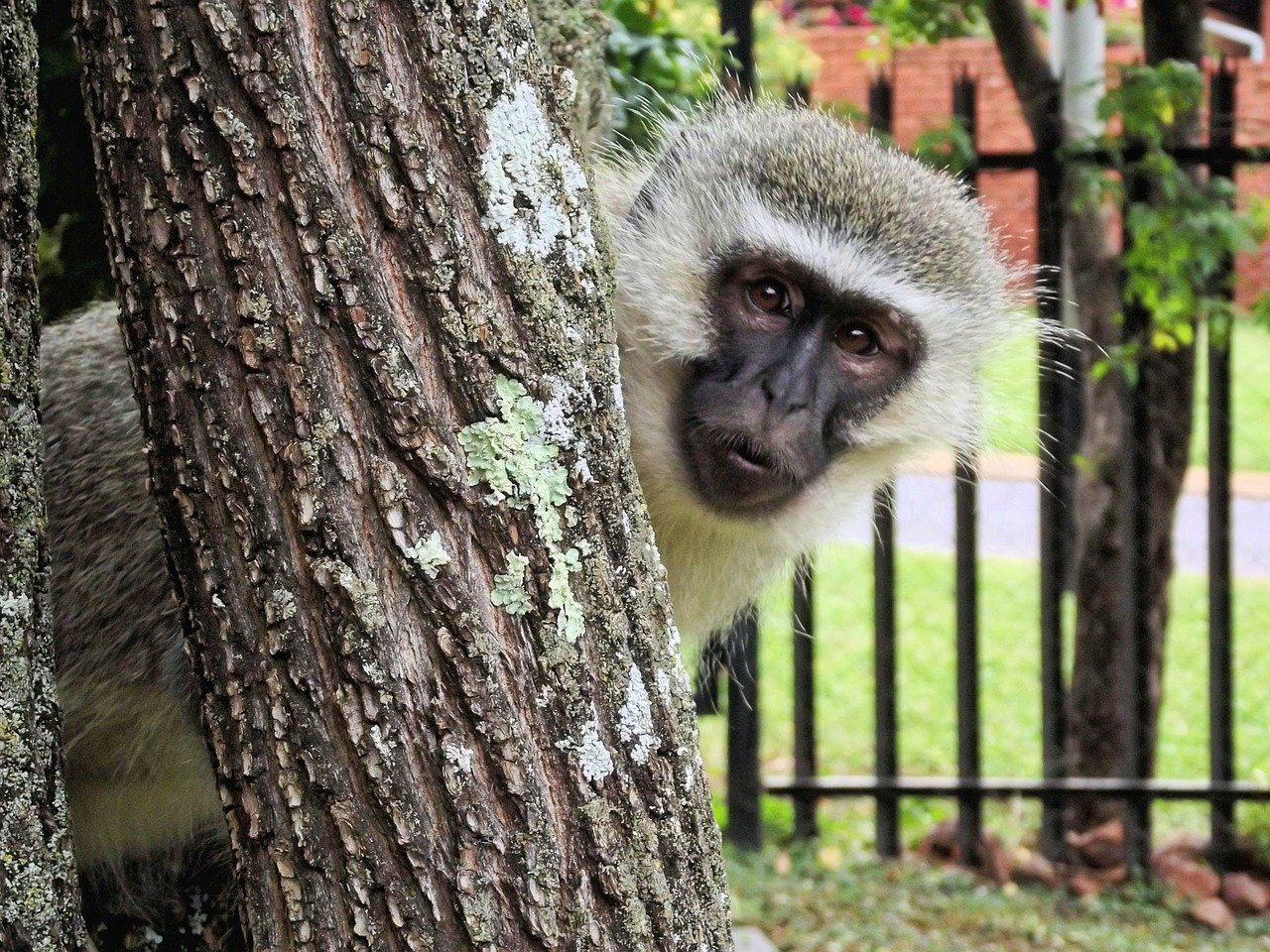Evolutionary psychology
 Another assumption that underpins the biological approach is that the environment presents challenges to the individual. This means that those who adapt best to the environment will have a greater chance of surviving, having children, and passing on their genes to their offspring. This is Charles Darwin’s theory of natural selection.
Another assumption that underpins the biological approach is that the environment presents challenges to the individual. This means that those who adapt best to the environment will have a greater chance of surviving, having children, and passing on their genes to their offspring. This is Charles Darwin’s theory of natural selection.
Darwin’s theory of natural selection explains how species acquire adaptive characteristics to survive in an ever-changing environment. According to the theory of natural selection, those members of a species who have characteristics that are better suited to the environment will be more likely to breed and thus pass on these traits. An example of this was seen by Darwin when he traveled the Galapagos Islands. Finches on different islands had different types of beaks. He found that the birds on each island had the beak that was most advantageous for the food available in that particular habitat.
Over several generations, the result of natural selection is that the species develop characteristics that make it more competitive in its environment. This process is called adaptation. When Darwin presented his theory in the book On the Origin of Species, he was not aware of the biological processes through which traits are inherited.
In addition to arguing that traits may be handed down, Darwin also laid the foundation for psychologists and biologists to study animals with the hope of gaining insight into human behaviour. In The Descent of Man (1871), Darwin noted that humans have a number of behaviours in common with other animals. These include mate selection, the love of a mother for offspring, and self-preservation. He also went on to catalog a number of facial expressions that people share with the apes. He argued that humans also share many of the same feelings as animals.
Evolutionary psychology is grounded in the theory that as genes mutate, those that are advantageous are passed down through a process of natural selection. Evolutionary psychologists attempt to explain how certain human behaviours are the result of the development of our species over time. It is important to remember that natural selection cannot select for a behaviour; it can only select for the genes that may produce behaviour. As you can see, there is another assumption made by evolutionary psychologists – that behaviours are genetic and may be inherited. As we know from the first part of this chapter, this assumption is still being tested.
An evolutionary argument for depression: the Social Competition hypothesis
How would an evolutionary psychologist explain the origin of depression? Price (1994) sees depressive behaviour as part of an “involuntary subordinate strategy” that provides “a mechanism for yielding in competitive situations”. Depressive behaviours in humans are likened to the submissive behaviours shown by other species to reduce aggression, signal defeat, and prevent physical injury during conflict. Price suggests that we have evolved a mechanism that triggers a cascade of symptoms including reduced interest, motivation, and initiative when faced with a ‘no win’ situation. These changes lead to submissive behaviours including social withdrawal which allows ‘losers’ to adjust to their reduced social status. While these behaviours may have prompted our primitive ancestors to conserve energy and minimized injury, today they are viewed as maladaptive and often hinder our ability to cope in the face of difficulties. Changes in social position are as common now as they were in our evolutionary past and depression as a result of loss, be it through personal bankruptcy, marital breakdown, or bereavement, is a widespread phenomenon.
Price refers to an animal’s awareness of their own fighting capacity (i.e. ability to know that they cannot win in certain situations) as their ‘resource holding potential’ (RHP) and sees this as an evolutionary pre-cursor to self-esteem. When animals come into conflict, it is their RHP that determines whether they attack (high self-esteem strategy) or becomes subordinate (low self-esteem strategy). The animal accepts the loss of rank and communicates this to others in order to avoid further conflict and risk of injury.
These submissive behaviours are believed to be adaptive as they also serve to restore stability within the wider social group, allowing the group to continue to function successfully. This, therefore, increases inclusive fitness - the ability of an individual organism to pass on its genes to the next generation.
Strengths
- Price’s theory is that it is able to explain the higher prevalence of depression in females than males. Given that parental investment is greater for females than males, it makes sense that females are more likely to adopt behavioural strategies that ‘put their children first’ compared with males.
- There is evidence from animal research to support the theory - see Raleigh et al (1984) below.
- There is evidence that depressed patients are more likely to avoid competition than people with other disorders or healthy controls. See Kupferberg et al (2016)
Limitations
- A weakness of Price’s theory is the rather dubious implications for attempts at treatment. The theory argues that depression can be alleviated by adapting to a lower position in the social hierarchy.
- The theory does not address the cognitive or biochemical origins of depression. The theory can be seen as reductionist in its approach.
- The theory is speculative with regard to the role of this behaviour in inclusive fitness.
Research in psychology: Raleigh et al (1984)
 Aim: To explore the relationship between social status and serotonin, a neurotransmitter believed to be associated with depressive symptoms, in Vervet monkeys.
Aim: To explore the relationship between social status and serotonin, a neurotransmitter believed to be associated with depressive symptoms, in Vervet monkeys.
Procedure: The monkeys were in groups of three males and three females plus their offspring, The researchers observed the adult males (captive for at least 5 months). They were categorized as dominant or submissive using an observation schedule.
In four of the groups, a naturally arising change occurred in the dominance hierarchy, i.e. a previously subordinate monkey became dominant and the dominant monkey became subordinate.
Serotonin levels were measured at the beginning of the study and then after the changes in the dominance hierarchy were observed. In order to do this, the monkeys were deprived of fruit for 48 hours and fasted overnight prior to measuring blood serotonin concentrations. All samples were taken between 6.30 and 8.00 am.
Findings: Serotonin levels increased by about 60% in monkeys that became dominant and decreased by about 40% in monkeys that became submissive. Similar results occurred when the researchers deliberately elicited changes in the dominance hierarchies. When they removed dominant monkeys, thus allowing one of the previously subordinate monkeys to become dominant, they noted that blood serotonin levels changed accordingly, i.e. increasing in the subordinates that became dominant and decreasing in dominants that were forced to become subordinate.
Conclusion: Animals that become submissive and do not continue to fight when confronted with a stronger opponent reduce their risk of being mortally injured or being rejected by the group and therefore are more likely to survive and pass this trait to future generations, thus showing how depressive behaviours may have been perpetuated as a product of natural selection. This research supports the idea that loss, in this case, of status within the group, may trigger ‘depressive’ behaviours, such as social withdrawal, decreased motivation, and acceptance of one’s lower social status, via the mechanism of reduced serotonin. The researchers link their
work to humans, suggesting that situations such as retirement or an extended personal crisis could similarly lead to reduced blood serotonin, and consequently trigger depressive symptoms.
Evaluating Raleigh et al. (1984) as support for social competition hypothesis
One strength of Raleigh’s study is the use of a pre-test/post-test design - that is, they measured the serotonin levels of the male monkeys before the changes in the social hierarchy occurred. This is a strength as it demonstrates that changes in serotonin levels occurred after changes in hierarchical position as opposed to the monkey’s losing one’s rank because of a drop in serotonin and this adds validity to the claim that depressive behaviours may be rooted in the loss of social status. In other words, this eliminates the problem of bidirectional ambiguity.
There are several limitations to this research. First, it is based on the assumption that serotonin is the cause of depression in humans. The serotonin hypothesis is highly contested. The research does not look at the role of other neurotransmitters or hormones in depressive behaviour, so the link to human depression may be limited.
Another limitation of Raleigh’s research is that the social lives of humans are far more complex than those of monkeys, suggesting the need for caution when generalizing the findings to human behaviour. It is unlikely that blood serotonin changes would be as dramatic in humans since they may occupy several dominant and subordinate status positions at any one time making the loss of one role less significant overall.
The study also does not address how cognitive factors may play a role when faced with a loss of position. This is an important point as humans are capable of ‘reframing’ a social loss as gain. For example, being turned down for a promotion at work could mean the person has more time for family, leading to an increase in self-esteem related to their ability to perform another role more effectively. Simply losing one's position in a hierarchy does not necessarily need to lead to depressive symptoms.
An alternative theory: The Pathogen Host Defense hypothesis
This theory was proposed by Raison and Miller (2012). They argue that the genes that increase one’s risk for depression also increase one’s immune response to infections. The depressive symptoms of social withdrawal, lack of energy, and loss of interest in once enjoyable activities may have actually played a key role in protecting our ancestors from infectious diseases.
Through GWAS studies, so far only two genetic variations have been identified as being linked to depression. One is a gene for NPY – or neuropeptide Y – which is a neuropeptide associated with stress. A variation of this gene results in lower levels of NPY – which makes it more difficult for the individual to cope with stress. When this happens, the immune system is activated and there is more inflammation. People with this variation are likely to pass it on to their offspring.
The researchers argue that the symptoms of depression also reflect this need to avoid disease. For example, social withdrawal would remove an individual from an area with high concentrations of pathogens – the microorganisms that lead to disease.
To test their theory, Raison et al (2013) gave the drug infliximab to depressed patients. Infliximab is an anti-inflammatory drug. They found that in depressed patients that showed elevated levels of inflammation, the drug reduced depressive symptoms.
This theory is relatively new, so more research is clearly needed. In addition, although depressed patients with inflammation showed an improvement, depressed patients that did not show inflammation did not show any significant improvement. This may mean that there are different types of depression and that the theory is not adequate for explaining all forms of depression. It may also mean that our moods have an evolutionary root, but that does not necessarily mean that depression itself has an evolutionary basis. However, as a result of such research, there is the potential that anti-inflammatory medication may play a role in the future treatment of people living with depression.
Connecting to the options
Evolutionary psychology has been used to explain human mating behaviour. In the unit on interpersonal attraction, you will find much more research that you could use for this question.
- Evolutionary theories are based on the assumption that behaviours are inherited. As we know from our study of genetics, it is difficult to know the extent to which certain behaviours are, in fact, genetically inherited.
- Since it may be difficult to test empirically some evolution-based theories, researchers may be susceptible to confirmation bias—that is, they see what they expect to see.
- Much of the research to test evolutionary theories is highly artificial and lacks ecological validity.
- Research often involves animals as participants. It is debatable to what extent we can generalize from animals to human beings.
- Little is known about the behaviour of early humans, so statements about how humans “used to be” are hypothetical.
- Evolutionary arguments often underestimate the role of cultural influences in shaping behaviour.
Checking for understanding
The theory that those who adapt best to the environment will have a greater chance of surviving and passing on their genes is known as ...
Which of the following statements is not an assumption held by evolutionary psychologists?
Evolutionary psychologists do not argue that all behaviour is the result of natural selection. Several behaviours are learned and do not have a genetic component.
What is Raison & Miller's theory about the role of depression in human behaviour?
According to genetic research, the gene for which hormone is linked to depression?
How did Raison et al (2013) test their hypothesis that depression is linked to the body's immune response?
Which of the following is not a limitation of evolutionary arguments for depression?
There is some evidence of the genetic roots of depression. GWAS research shows that a mutation of neuropeptide Y is found in many depressed patients. Caspi's research showed the role of the 5HHT serotonin transporter gene mutuation.

 IB Docs (2) Team
IB Docs (2) Team
